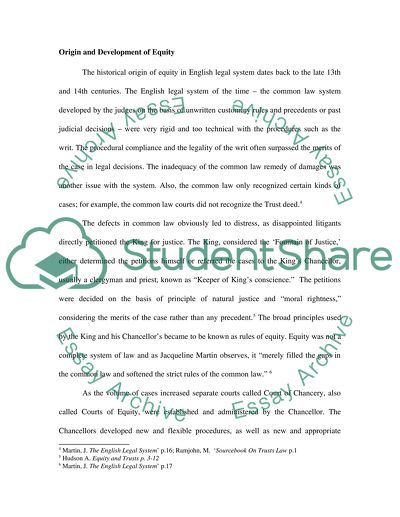Cite this document
(A Long Tradition and Role of Equity in English Law Term Paper, n.d.)
A Long Tradition and Role of Equity in English Law Term Paper. Retrieved from https://studentshare.org/law/1502447-equity-in-legal-system-origin-development-and-significance
A Long Tradition and Role of Equity in English Law Term Paper. Retrieved from https://studentshare.org/law/1502447-equity-in-legal-system-origin-development-and-significance
(A Long Tradition and Role of Equity in English Law Term Paper)
A Long Tradition and Role of Equity in English Law Term Paper. https://studentshare.org/law/1502447-equity-in-legal-system-origin-development-and-significance.
A Long Tradition and Role of Equity in English Law Term Paper. https://studentshare.org/law/1502447-equity-in-legal-system-origin-development-and-significance.
“A Long Tradition and Role of Equity in English Law Term Paper”, n.d. https://studentshare.org/law/1502447-equity-in-legal-system-origin-development-and-significance.


